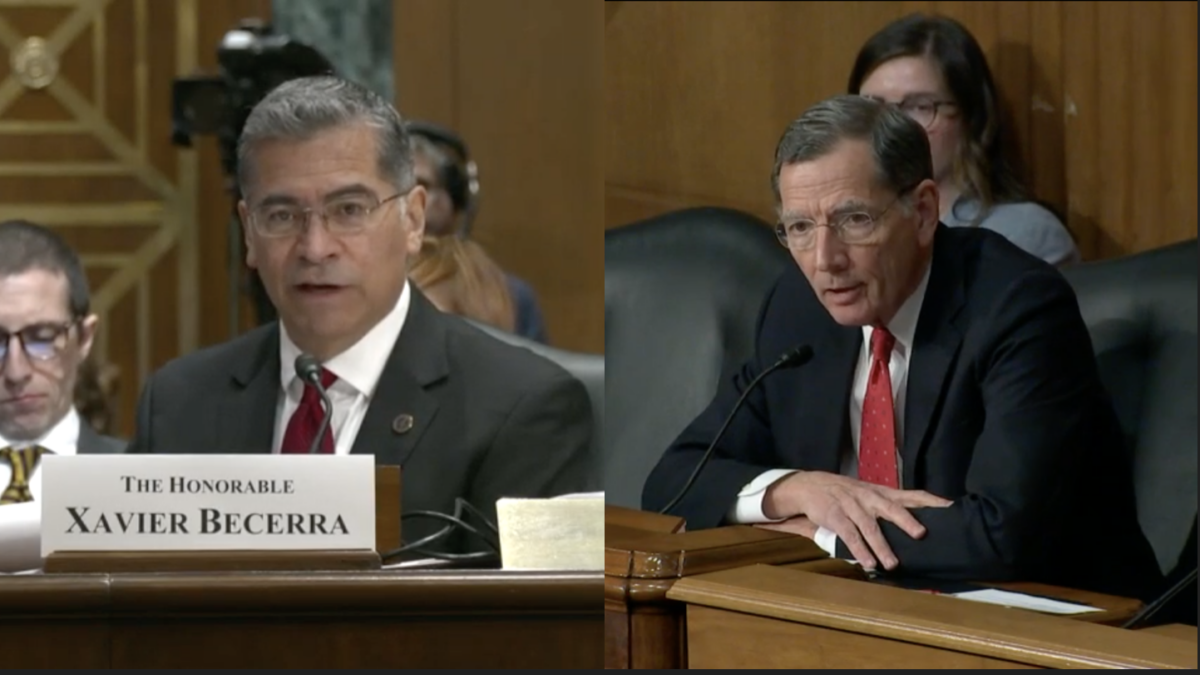
The Washington Post recently published an insidious analysis comparing Trump’s caravan rhetoric to right-wing populists “making up stories” and “stoking fear” during the European refugee crisis.
The article began by disparaging what the author believes to be unsubstantiated claims that the approaching caravan from Central America is an “invasion” and “terrorism risk,” as President Trump has described. According to the author, there’s “no better way for populists to win an election than by announcing a national emergency that plays into voters’ fears.”
It’s quite startling that a journalist would completely discard the horrific events that culminated during the extended, and at times fatal, refugee crisis across Europe. In 2015 and 2016, there were more than 2.3 million illegal crossings recorded across the European Union, with Germany absorbing more than 1 million foreign citizens in 2015 alone.
While the encroaching caravan south of our border may seem miniscule in comparison, the mass exodus of people from Northern Africa and the Middle East to Europe did not transpire overnight either. The first signs of the preceding European crisis began in January 2015, after a ship abandoned by smugglers was rescued off the coast of Italy with only 360 Syrians on board.
In the following months, ships carrying anywhere between a few hundred to a thousand people were intercepted all along Mediterranean coastlines. Figures from the United Nations Refugee Agency showed that 63,000 foreign citizens arrived in Greece and 62,000 in Italy during just the first half of 2015.
In the summer of 2015, Macedonia was forced to seal its border with Greece and declare a state of emergency to help the government cope with a seemingly unending inflow of foreigners, as the numbers trying to enter Macedonia rose to more than 3,000 per day. This occurred roughly at the same time German Chancellor Angela Merkel announced “no limits on the number of asylum seekers” Germany would take in, before reversing her statement under significant public pressure two years later. At the time, her generous asylum appeal originated from the widespread assertion that most border-crossers were simply fleeing violence from war-torn homelands.
The Dublin Regulation requires that asylum seekers register their asylum claim in the first country they arrive in, and says that country’s determination is the final decision for all EU countries. Since most migrants historically preferred to apply for asylum in Germany and Sweden, where benefits are more generous, European populists began popularizing the phrase “asylum shopping” to dispel the ongoing myth that these foreigners were merely seeking sanctuary.
“The reality is that that the right to asylum has largely been exploited… we grant asylum, indiscriminately, to individuals who do not need it, said Front National politician Aurélien Legrand. In some instances, asylum seekers were reported even burning their own fingers to evade the fingerprint record control required by the Dublin Regulation and apply for asylum in a country of their choice.
If you’re asking why this matters to the present caravan discourse, look no further than the fact that the migrants passing through Southern Mexico last week turned down a host of employment and welfare opportunities offered by the Mexican government. The state-sponsored plan called Estás en Tu Casa (“You’re in Your Home” in Spanish) would provide temporary ID cards, work permits, medical care, schooling, and even hostel accommodation to Central Americans who have officially applied for refugee status in Mexico or plan to in the near future.
“Today, Mexico extends you its hand,” President Peña Nieto announced, urging fatigued foreign citizens to suspend a journey that commenced in San Pedro Sula, Honduras at the beginning of October. To qualify for the bid, migrants must remain in Mexico’s southern Chiapas and Oaxaca states.
Not surprisingly, most migrants proclaimed they had no intention of ceasing their plans to reach the United States. By last Saturday, only 100 Hondurans “opted to seek refugee status and enter the temporary work program proposed by the Mexican government,” Reuters reported.
“The majority plan to cross the border. And that’s my intention, too,” José Santos, from Honduras, told the BBC. “Because, yes, while life here [in Mexico] is calmer than at home, it’s still not like the US where it would get better […] That’s the goal: to have a better life.”
Routine refusals by migrants from Central America, Northern Africa, and the Middle East to accept asylum and other generous opportunities considerably casts doubt on the humanitarian underpinning that migrants are mostly fleeing violence and crime.
Economic migrants, classified as those seeking a better quality of life even if they are fleeing devastating poverty, are not considered refugees and do not have the same protections as those claiming regular asylum. According to the 2016 Economic Commission for Latin America and the Caribbean (ECLAC), 30 percent of the Latin American population, which is 186 million people, were considered impoverished, while 10 percent or 61 million people were living in extreme poverty.
It’s therefore not inconceivable that a caravan of a few thousand migrants could quickly swell into hundreds of thousands or even millions if poverty alone is an adequate justification to settle in the United States. Can and should the United States absorb an innumerable amount of migrants primarily seeking economic mobility?
The EU, particularly Germany, considered migrants a much-needed reinvigorating economic and multicultural force, yet today an estimated 80 percent of Syrian refugees in the EU are unemployed and integrating migrants and refugees remains an agonizing issue for cities and regions across the continent.
While President Trump might be artificially enlarging the scope of the current caravan, it’s also worth remembering that many European leaders claimed their refugee crisis was insignificant before it escalated within a few months. The left’s inability or unwillingness to foresee a potential crisis is perhaps more troubling than a populist’s occasional overstatement.
This could partially explain the president’s growing focus on circumventing terrorism or other crime-related activities that tend to accompany unregulated border crossings. Over the last several years the media has spent an endless amount of time blathering about the “fear-mongering” rhetoric of populist leaders across the European Union.
Apparently there is never anything to fear. Populists are simply demagogues and xenophobes constantly “playing with fear.” “The claim that alleged terrorists in that caravan pose a risk is simply wrong, but of course if fits into Trump’s strategy,” said Peter Neumann, a London-based radicalization scholar who is writing a book about Trump because doing so pays well nowadays.
But what if Trump is not wrong? Again, look no further than the European refugee crisis. In November 2015, Islamic State militants carried out a series of terrorist attacks in Paris, killing 130 civilians. Some of the perpetrators had entered Europe through the flow of migrants and refugees.
Less than two months later, hundreds of sexual assaults, thefts, and at least five rapes were reported in several German cities, mostly in Cologne. The chief prosecutor there stated that “the overwhelming majority” of suspects were asylum seekers and illegal immigrants who had recently arrived from North Africa and the Middle East. A few days later, an investigation was launched based on allegations that the Swedish police and journalists were covering up mass sexual assaults by immigrant youths at a music festival.
The Heritage Foundation reports that, since January 2014, 44 refugees or asylum seekers have been involved in 32 Islamist terror attacks in Europe, leading to 814 injuries and 182 deaths. While only 16 percent of terror plots between 2014-2017 involved refugees or asylum seekers, this nevertheless proves that danger from unchecked migration is not a fantasy, but a documented reality.
The prevailing consensus that Trump’s exaggerating language is merely a midterm ploy is not only naive, but willfully ignorant of the recent past. Many Americans will gladly accept Trump’s occasional hyperbolic rhetoric over Democrats and the media’s consistent apathy. If Trump is stoking fears to garner votes, it’s fair to say that Democrats are certainly acting inattentive to preserve votes.









